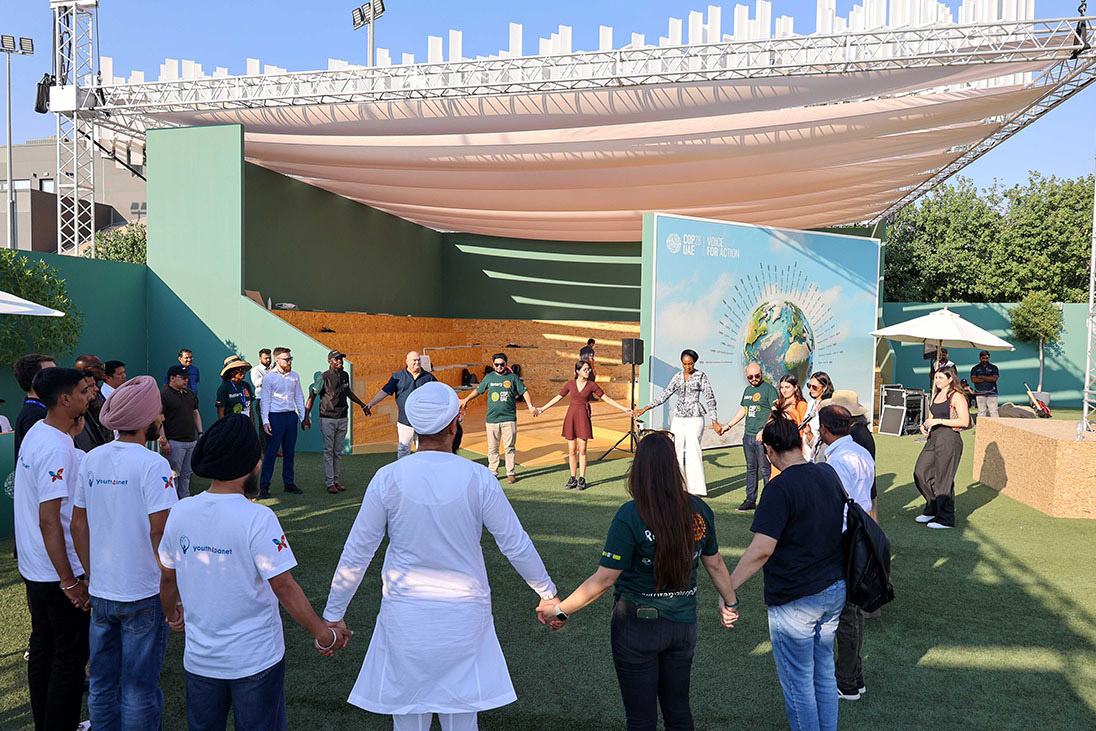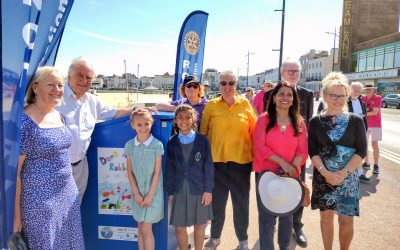This was Rotary’s third time attending the fortnight long conference, after previously attending COP26 in Glasgow and COP27 in Sharm el-Sheikh, Egypt.
The Rotary International Pavilion, situated in the event’s Blue Zone, played host to more than two dozen sessions looking closely at how climate intersects with health and poverty.
Leading speakers covered a diverse range of environmental topics, including the impact of invasive species on biodiversity, smart energy, mass movement on urbanisation and regenerative agriculture.
Rotary’s delegation included President Gordon McInally, General Secretary John Hewko, Rotary Foundation Trustee Chair Barry Rassin, and Judith Diment, dean of the Rotary Representative Network.


Rotary held over 28 sessions at the global climate conference in Dubai.
For Gordon McInally, mental health has been a major focus for his presidency, with Rotary clubs around the world launching initiatives in their communities to support people during this growing crisis.
Climate anxiety has been growing in prevalence in recent years too, with escalating climate emergencies causing mental distress to people worldwide.
Speaking about the conference, Gordon said: “The record global temperatures this year have underscored the immediate need to take action on climate change.”
“They have also demonstrated the massive destructive toll that climate has taken on global mental health.”
“Being part of the Rotary delegation was an honour. [There has been] so many informative presentations and opportunities to have meaningful conversations with the UAE Government, UNICEF, and the World Health Organization (WHO) on potential partnerships in the field of mental health.”
The record global temperatures this year have underscored the immediate need to take action on climate change.”
Also part of Rotary’s delegation were 12 Rotaract members from across the globe, who have each lent their voice to climate action projects and activities in their communities and further afield.
The fortunate dozen included two members from Great Britain and Ireland; Elliott Lancaster, founding President of Keele University Rotaract and now a member of Mercia & Marches Rotary, and Rob Sisson, a member of Tyneside Rotaract.
Elliott is Sustainability Chair at the Staffordshire Wildlife Trust, and founded Utter Rubbish, a student-led social enterprise that uses data to promote better waste management and tackle fly-tipping.
Rob also shares a passion for the planet in both a professional and voluntary capacity, with the latter including leading projects to protect the coastline across the Northeast of England.
The environment became Rotary’s seventh Area of Focus in July 2021, with The Rotary Foundation committing more than $23.7 million towards environmental projects led by Rotary members around the world.
One key initiative has focused on mangrove forests, which help to protect coastlines and marine life.
Rotary has the unique opportunity to assist in mangrove restoration projects.”
Rotary members in the United Arab Emirates, where COP28 was held, are planting 50,000 mangrove trees in partnership with the government.
“Mangrove ecosystems in the tropics and subtropics around the world are in peril because of their position along coastlines,” says Christopher Puttock, Chair of the Rotary Action Group for Endangered Species. “Because of the rapid sea-level rise we are experiencing, and the persistent need for human coastal development, these ecosystems are being squeezed out of existence.”
“Working with governments and local communities, Rotary has the unique opportunity to assist in mangrove restoration projects.”










